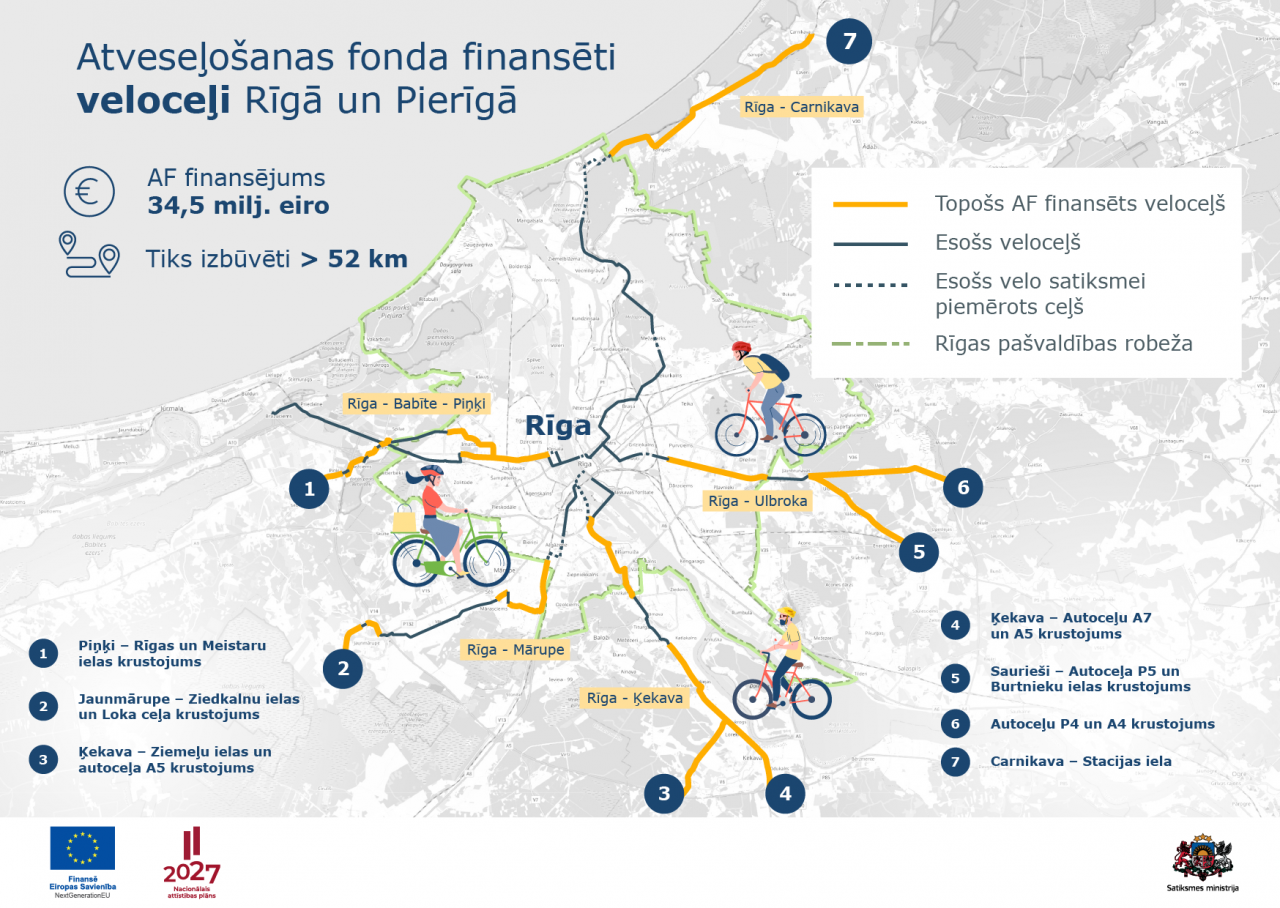The Ministry of Health has elaborated the information report on the Digital Health Strategy that was presented in the government on August 15, 2023. The strategy sets out the directions and challenges for action on the digital transformation in health sector. The main sources of funding for the planned measures are State budget and the investments of the EU funds.
The Digital Health Strategy foresees a paradigm shift in the perception – seeing all stakeholders in the health sector, their data, solutions and services as a single system. Thus, one of the essential tasks is cooperation between all parties involved: institutions, medical practitioners and other specialists, patients, developers of digital solutions, etc.
Digitalising of health data will make it possible to reduce double examinations, ensure better coordination of healthcare, promote data-based decision-making in both health care and health policy. Digitisation of health data will strengthen epidemiological safety and facilitate the exchange of information in crisis and disaster situations. Integration into the European Health Data Space is important, allowing access to data in a safe way.
The planned measures aim to achieve the following results:
· Digitalisation significantly reduces the flow of “paper” medical documents. The patient will have an electronic health card in e-Health, or DigiVes Information System, which will be the main data storage. The information systems of healthcare providers will be integrated with the patient's electronic health card and will ensure the processing of centrally stored health data in a structured way, both in providing and receiving data. Medical practitioners will have access to digital patient health data generated by all medical treatment institutions regardless of the type of service (State paid or out-of pocket services);
· Digital solutions help patients to participate in their health care and improve their health skills. Patients will be more actively involved in their health care, including safely managing their own health data in digital environment, which will be available operationally to all stakeholders as needed and in accordance with the regulatory procedures. Access to health data will be possible in both patient portal and interoperable applications. Patient health literacy and co-skilling will improve;
· Remote solutions and other digital technologies are also used in medicine and prevention. Technology usage will allow to review the patient's paths. Digital technologies will make it easier for medical practitioners to enter data only once, monitor and advise patients remotely. Telemedicine will enable patients and doctors to be more mobile and flexible;
· The awareness of digital health solutions by health professionals is increasing significantly. Any innovation in day-to-day work will be introduced together with training and support for both practitioners and patients;
· The management of the health sector is data-based. Data on medical treatment and patient experience will be easily collected and analysed. The data will be available to researchers and policy makers in a safe way. Within the European Health Data Space, data exchange for research, innovation, policy making, regulatory decision-making and patient safety will also be carried out at cross-border level;
· Funding and human resources are provided for the development and maintenance of digital solutions. The main source of funding for the implementation of the strategy is the funding of EU funds. Part of the funding will be directed to attracting specialists needed by the National Health Service.
* “Digitālās veselības stratēģija līdz 2029. gadam”


